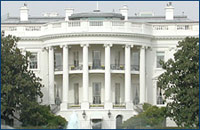The Scrabulous Lawsuit: Heading Toward Default?
![]() I’ve posted extensively recently on Hasbro v. RJ Softwares, the Scrabulous lawsuit, including a four-part series on PrawfsBlawg and two posts here on the similar litigation in India. See my last post for links to all of those materials, and see this article for background if you’re just tuning in.
I’ve posted extensively recently on Hasbro v. RJ Softwares, the Scrabulous lawsuit, including a four-part series on PrawfsBlawg and two posts here on the similar litigation in India. See my last post for links to all of those materials, and see this article for background if you’re just tuning in.
In the PrawfsBlawg series, I noted a number of interesting legal issues that might be raised during any litigation or, even better, appeal of the dispute between Hasbro, the owners of the North American rights to Scrabble, and RJ Softwares et al., the makers of Scrabulous. In particular, I noted some surprising weaknesses with Hasbro’s copyright claims, including the blackletter rule that games are not copyrightable, lack of ownership over the Scrabble dictionary, and the apparent lack of registration of the Scrabble letter tiles. Even more troubling, I noted a possible formalities problem with all of the Scrabble copyrights dating back to the original 1948 registrations. On the plus side for Hasbro, I questioned the purpose of the under-theorized blackletter rule, although I ultimately concluded it played an important role in copyright law.
Much as I would like to see these issues play out in court, however, I may not get that chance. On Thursday, Hasbro filed proof of service with the court, showing that the defendants were served on August 13. My guess would be that a motion for a default judgement will be hot on its heels. For civ pro junkies, I’ll go into a few more details after the jump.


